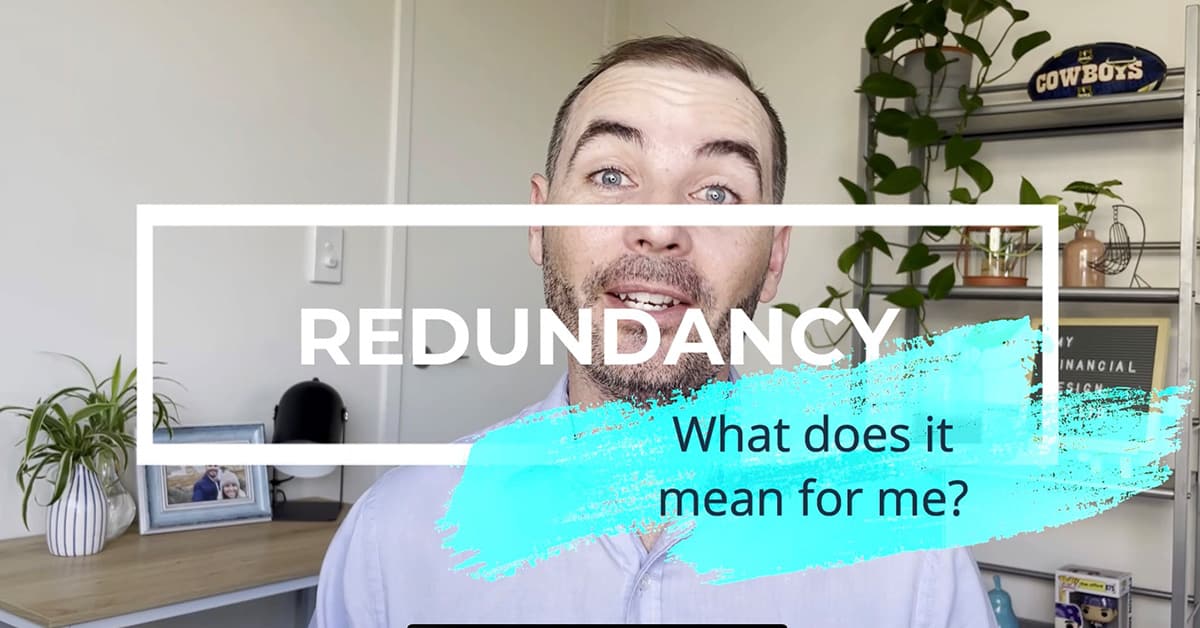Finding out you’re being made redundant can be scary. Before we get into the financial implications we also need to think through what our mindset is going to be like.
A huge part of our identity is wrapped up in our job and having this part of our life removed, even for a short period, can throw up all sorts of feelings we may not have experienced for a long time. Our work is hugely personal and its routine is a familiar anchor.
Without it, we can start to drift a little and question ourselves internally. Be prepared for this and make sure you’ve got the right support around you. Then of course there is the payout itself. If you’ve only been with your company for a small number of years, the payout may not be enough to cover you while you’re thrust into looking for a new job. And you can have this fear that you’re going to have to settle and take a job that you don’t love.
On the other hand, you may be feeling something completely different. You may have worked for your company for many years, and you’ve seen the writing on the wall, and you’re now relieved that you’ve got a sizable payout that you’ve been waiting for. Perhaps this is your ticket to an affordable retirement. Or maybe you sit somewhere in between these two ends of the spectrum, but either way, this has now forced you to regroup, take stock and decide what your next move is.
I’m thinking of some of my clients who have recently been made redundant after long careers with Qantas, for example. In the aviation sector, it’s not as simple as looking for the same job but at a different company, you have to soberly assess your options. If you’re in the latter years of your career, you’ll have a number of considerations running through your mind at this point: If I choose to stop working, can I afford to retire? What sort of money do I need to enjoy and have a comfortable lifestyle? How long will my money last? Or maybe you think, am I going to be eligible for the age pension at some point in the future.
These are all questions My Financial Design can help you with.
Having a qualified financial planner, work through these areas with you will provide you answers and clarity, so you can make an informed and educated decision about what to do next. But since we’re on the topic of redundancy, let me give you some high-level considerations when it comes to your payout. Genuine redundancy payments are tax-free up to a limit based on years of service and providing you’re under age pension age. Payment amounts that don’t form part of this tax-free portion have special tax rates and it may not simply be your marginal tax rate.
For tax law purposes your payment can have up to four parts.
- Tax-free, as I’ve mentioned.
- Concessionally taxed, which is taxed at the lower of your marginal tax rate or the applicable maximum tax rate.
- Taxed at your marginal tax rate.
- Taxed at the highest marginal tax rate.
This is where the relevant concessional cap has been exceeded. Which of these four parts applies depends on the type of payment, how your employment was terminated and your age.
I won’t get into further details here, but my point is there may be tax considerations that you need to plan for. Here’s three options worth exploring.
- Superannuation contributions. You may benefit from making personal contributions to superannuation and claiming the tax deduction.
- Anniversary date. If the company is flexible, you may benefit from having a redundancy date deferred until after your employment anniversary date.
- Preservation age. Once again, if your company is flexible, you may benefit from having your redundancy date deferred until the new financial year if you’re going to reach your preservation age in the new financial year.
If you’d like help looking into your options when it comes to redundancy, payouts and running through your figures so you can decide your next steps, or if you’re considering choosing to permanently stop working and you’d like to get some of the bigger questions answered such as how much money do I need to retire and how long is my money going to last, reach out and start a conversation.
I’m Luke Hanson, Financial Adviser, and director at My Financial Design.


